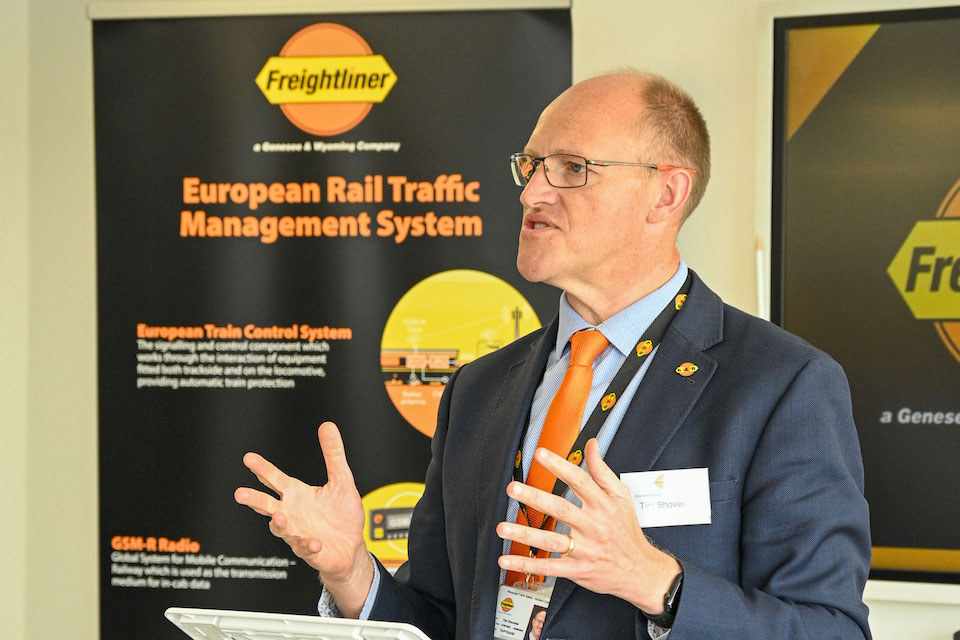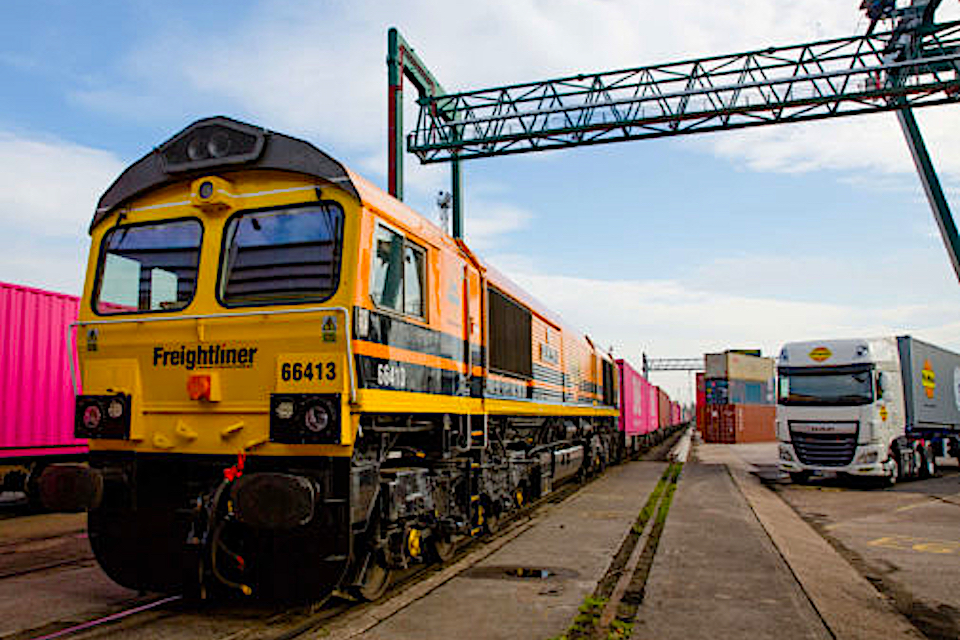Tim Shoveller, the chief executive of Genesee and Wyoming UK and Europe, less tongue twistingly branded as Freightliner, has bemoaned the rising cost of operating rail freight in the face of environmental issues. On the first anniversary of his appointment, the former Network Rail boss has called out the widening gap between the costs of operating rail freight and the falling costs of road trucking. He says this is at odds with the drive towards net zero.
Freightliner in the UK has marked the beginning of a new financial control period on Britain’s railway network with a call for more equitable pricing. The infrastructure agency Network Rail’s ‘Control Period Seven’ (CP7) has opened, and Freightliner wants to see changes come along at the same time. Instead, Freightliner’s chief executive says costs are rising for rail, and, at the same time, road costs are falling.
The latest five-year plan
Freightliner’s chief executive, Tim Shoveller, has said his company will continue to push for a more equitable deal for rail freight. “It’s a shame to see real increases in [charges] to run environmentally friendly freight trains whilst road costs reduce”, he said. “So we will keep pushing forward with our ambitious plans, including making the case for rail freight.”

The former Network Rail boss was on the other side of the equation until he was appointed to Freightliner in March last year. Had he not made that move, then he would be levying those charges that the infrastructure agency charges for using the UK railways. The latest five-year plan, known as Control Period Seven (CP7), began on 1 April. Shoveller says it brings several key changes and challenges for rail freight. These include higher track access charges and tougher penalties for any delays caused.
Strained public budgets have shelved support
“At Freightliner, we are calling on the government for a policy framework which enables freight operators and customers to respond to these challenges,” he said. Shoveller goes further and says he wants to surpass the UK Government target of growing rail freight by at least 75 per cent by 2050. The experienced manager, with over thirty years in the industry, has called on the government to make radical changes to the way the rail freight industry is regarded.

Running costs are top of the agenda. He wants to see a halving of the track access charges that freight pays to run trains on the network. Also, he wants to couple that to a doubling of the modal shift grant that businesses can access to support using rail where the costs are higher than the road. That latter point is highly contentious. Strained public budgets have shelved almost all support for commercial rail freight development. Even the government in Scotland, which has devolved powers for transport matters and follows a deep shade of green on environmental issues, has suspended grants of this nature.
Fewer barriers to road trucking
Tim Shoveller wants the exact opposite of those short-term budget constraints. He urges governments across the UK to keep investing in the rail network to ensure sufficient capacity on busy rail corridors and to enable more freight trains to be timetabled. “At Freightliner, we see the 75 per cent growth target as a floor and not a ceiling. We are looking to not only meet this target but to surpass it.”
Those sentiments are surely echoed by the entire rail freight sector. Without going into specifics, Shoveller is clearly perplexed by the perceived challenges of running a freight railway when there seem to be fewer barriers to road trucking. “Strong governmental policies will help to support this essential rail freight growth by addressing the increasing cost gap between road and rail”, he said.